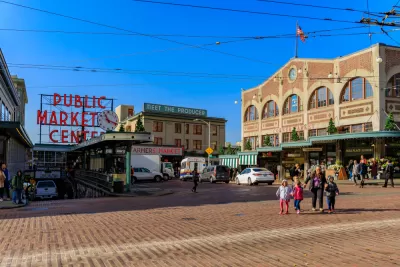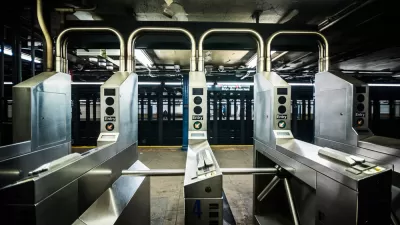Project for Public Spaces' Market Cities Initiative seeks to understand and addresses challenges faced by the public marketplaces to improve market infrastructure and promote healthy food systems in local communities.

In a partnership with Healthbridge and Slow Food, Project for Public Spaces (PPS) kicked off the Market Cities Initiative with citywide strategies in three major metropolitan areas, working remotely with stakeholders in Pittsburgh, Seattle, and Toronto to better understand the importance of sustainable public marketplaces and to support communities by way of developing localized market networks.
The PPS strategy seeks to address the many threats faced by public markets and the economies that house them. "These constant and immediate threats include increasing urban development and value of real estate; the modernization and centralization of food systems; economic development practices that neglect women, minority populations, and other small entrepreneurs; and the lack of management capacity of the markets themselves," say PPS officials.
PPS worked in February to gather data about challenges faced by public markets through a Market Cities Survey that collected initial responses from more than 60 cities worldwide. Survey participants reported a lack of communication between market managers in their area. The next step in the strategy: Inventory and map market networks and conduct online forums to connect market operators and city officials.
Given the uncertainty of U.S. markets' ability to operate in the near future, PPS will keep watch over government, police, and investor responses as they continue to move forward with the project.
FULL STORY: KICKSTARTING MARKET CITY STRATEGIES IN PITTSBURGH, SEATTLE & TORONTO

Planetizen Federal Action Tracker
A weekly monitor of how Trump’s orders and actions are impacting planners and planning in America.

Congressman Proposes Bill to Rename DC Metro “Trump Train”
The Make Autorail Great Again Act would withhold federal funding to the system until the Washington Metropolitan Area Transit Authority (WMATA), rebrands as the Washington Metropolitan Authority for Greater Access (WMAGA).

The Simple Legislative Tool Transforming Vacant Downtowns
In California, Michigan and Georgia, an easy win is bringing dollars — and delight — back to city centers.

The States Losing Rural Delivery Rooms at an Alarming Pace
In some states, as few as 9% of rural hospitals still deliver babies. As a result, rising pre-term births, no adequate pre-term care and "harrowing" close calls are a growing reality.

The Small South Asian Republic Going all in on EVs
Thanks to one simple policy change less than five years ago, 65% of new cars in this Himalayan country are now electric.

DC Backpedals on Bike Lane Protection, Swaps Barriers for Paint
Citing aesthetic concerns, the city is removing the concrete barriers and flexposts that once separated Arizona Avenue cyclists from motor vehicles.
Urban Design for Planners 1: Software Tools
This six-course series explores essential urban design concepts using open source software and equips planners with the tools they need to participate fully in the urban design process.
Planning for Universal Design
Learn the tools for implementing Universal Design in planning regulations.
Smith Gee Studio
City of Charlotte
City of Camden Redevelopment Agency
City of Astoria
Transportation Research & Education Center (TREC) at Portland State University
US High Speed Rail Association
City of Camden Redevelopment Agency
Municipality of Princeton (NJ)




























